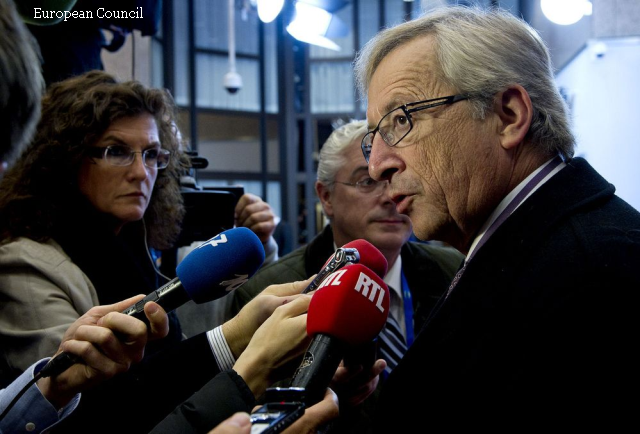Post-Election Negotiations
Tough negotiations seem to lie ahead, regarding the membership of the future European Commission.

România Internațional, 28.05.2014, 13:24
Once the results of Sunday’s election for the European Parliament announced, negotiations have started on the future membership of the European Commission. The first to try to form a majority in the European Parliament, with 376 out of the 751 seats, is the former Luxembourg PM Jean-Claude Juncker, the candidate of the European People’s Party for EC president. Juncker’s legitimacy is supported by the EPP having the largest number of seats in the new Parliament, namely 213. But his mission, commentators note, will not be easy. The party lost 50 seats in the EP compared to the previous term, and its radical right wing has come to include a growing number of Euro-sceptics and xenophobic nationalists, which has weakened the strength and unity of this ideological family.
This is precisely why, pundits say, Juncker cannot afford a strong negotiation position, particularly in relation to his possible partners, the Socialists, who have close to 200 seats. The Romanian PM Victor Ponta spoke about the possible alliance of the EPP and the Socialists:
“The programme and main projects of the European Commission for the coming 5 years will have to reflect the priorities of both parties. And I believe this is what will happen. Everybody has understood that austerity measures did not work for Europe. In political terms, these austerity measures benefited the anti-Europeans.”
Beyond the membership of the new commission, the Romanian President Traian Basescu discussed Romania’s interests in pragmatic terms. He said the country has four major goals for the near future:
“Increasing the number of jobs is the first. The second is sustainable economic growth, primarily based on investments. The third is a stronger focus on the infrastructure in the European Union’s eastern periphery, and last, the price of energy, as a key element for competitiveness.”
On the other hand, just like any other member state, Romania is interested in the position it will hold in the new Commission. Both the President and the Prime Minister pleaded for Romania keeping the Agriculture Commissioner post currently held by Dacian Ciolos. Nonetheless, the two suggested they have different views on the person that should be nominated for this position.






























